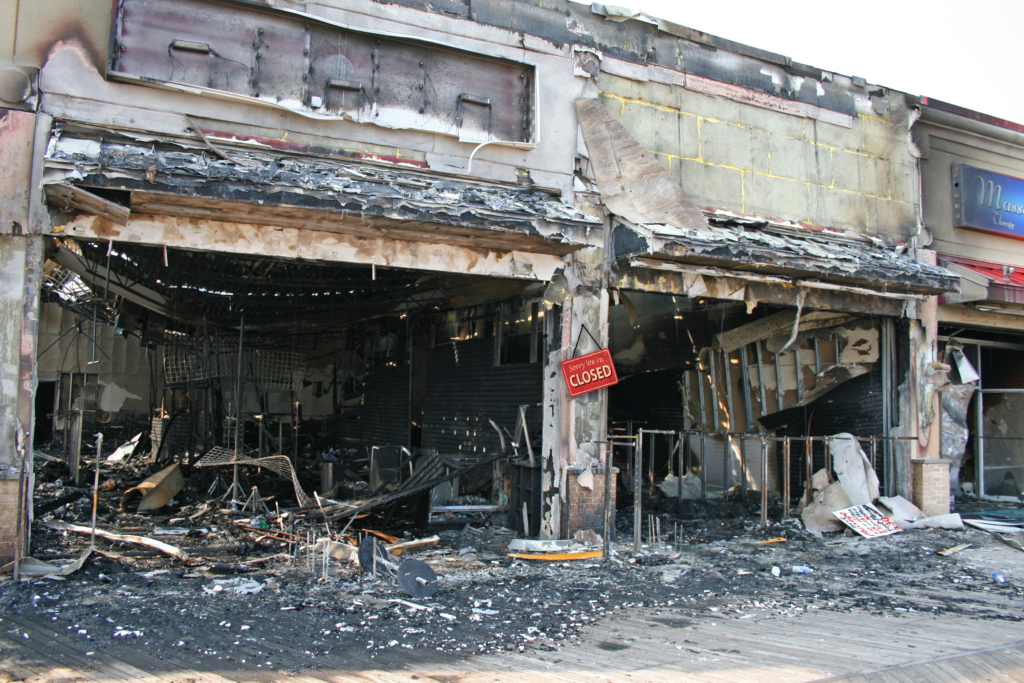Fire sprinklers prevent the spread of fire, protecting property, business, employees, patrons and first responders. They also prevent economic loss due to business closure, provide insurance savings and decrease liability risks. If your property is not protected, there has never been a better time to retrofit or upgrade fire sprinkler systems in existing commercial structures, thanks to significant tax incentives passed by Congress.
In addition to combating COVID-19 and its negative economic impacts, the Coronavirus Economic Stabilization (CARES) Act of 2020 also includes a technical correction to the 2017 Tax Cuts and Jobs Act (TCJA) that gives incentives to corporations that retrofit their businesses with fire sprinkler systems.
The 2017 TCJA allows business owners to write off the full cost of commercial fire sprinkler systems as an expense up to $1 million (adjusted for inflation in 2019 to $1.04 million). This benefit enables many small businesses to immediately recover the costs of the upfront investment. Also, those who borrow money to pay for a project can fully deduct the interest expense of the loan.
Section 179 of the U.S. Internal Revenue Code has long allowed small businesses to deduct the cost of certain property like machinery as an expense at the moment it is placed in service—instead of writing it off over its useful life. The new Section 179 deduction applies to upgrading existing systems or retrofitting systems in existing structures. The goal is to stimulate long-term economic growth by encouraging businesses to make capital investments. The Section 179 benefit is not phased out over time.
For big businesses to receive the full TCJA benefit, a company may currently only spend the maximum of $2.59 million on equipment in a year. After that, the deduction phases out on a dollar-for-dollar basis and eventually reaches zero. Therefore, if a property owner purchases more than a $3.63 million system, it doesn’t qualify for a Section 179 deduction. And, for instance, if you spend $2.69 million on property—$100,000 over the cap—you can only write off $940,000 through Section 179, instead of the full $1.04 million.
The TCJA allows businesses to deduct more than the Section 179 limits had previously allowed for certain types of equipment. And for the first time, the law consolidated several categories of equipment—including fire sprinklers—under the umbrella of qualified improvement property (QIP). QIP refers to improvements made by a taxpayer to an interior portion of an existing building that is nonresidential real property.
A drafting error in the final version of the TCJA bill left larger businesses unable to receive the benefits of this new classification, however, that was recently corrected in the CARES Act. Now, under Cost Recovery Section 13201 of the TCJA, QIPs are a qualifying expenditure for bonus depreciation, a method of accelerated depreciation that allows companies to immediately deduct a sizable portion of the purchase price of eligible assets. This means that any size business can deduct 100% of the cost of a sprinkler system installation. To be eligible, the equipment must be put into use after September 27, 2017, and before January 1, 2023. (A tax advisor can help a property owner retroactively claim any missed deductions from installing a fire sprinkler system between September 27, 2017 and present.)
Bonus depreciation only applies the first year the property is placed in service. And between 2023 and 2026, the bonus depreciation percentage is gradually reduced (80% in 2023; 60% in 2024; 40% in 2025; and 20% in 2026) until the depreciation schedule is permanently set at 15 years in 2027. Previously, the cost of all commercial fire protection systems was depreciated over 39 years.
Once bonus depreciation drops below 100%, the remaining cost of the sprinkler system is spread out over 15 years as regular depreciation under Modified Accelerated Cost Recovery System (MACRS), a federal income tax convention that allows for a larger tax deduction in the early years of an asset’s useful life, and less with the passage of time. A professional tax advisor can help a business determine precisely how the new incentives will impact its bottom line. Also, keep in mind that companies must be profitable to take advantage of the tax deduction.
Whether your building is required to install fire sprinklers due to model codes and/or local ordinances or you are looking to upgrade your building’s fire safety, act quickly to take advantage of the federal tax incentives before the full benefits expire.
For more information visit Firesprinklerassoc.org/federal-incentives.
# # #


